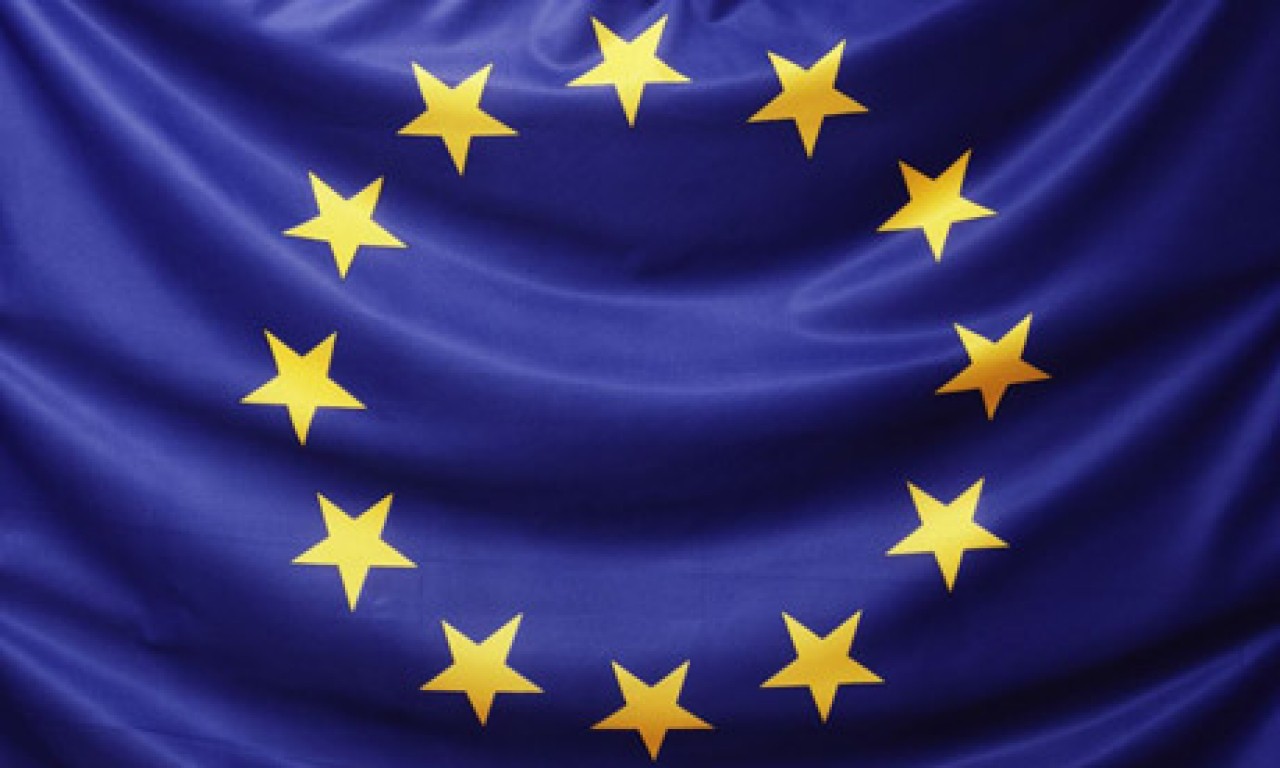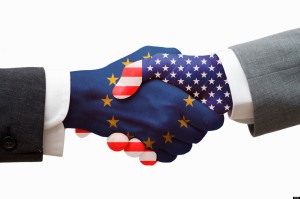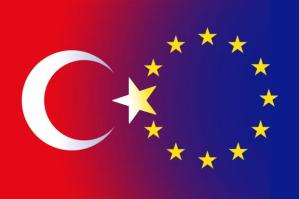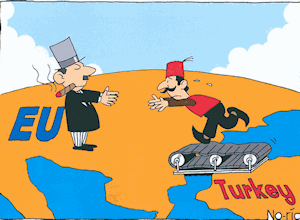History
The EU and U.S. are the biggest economic and military powers in the world (even if the EU does not have a common defense policy), they dominate global trade, they play the leading roles in international political relations, and what one says matters a great deal not only to the other, but to much of the rest of the world. And yet they have regularly disagreed with each other on a wide range of specific issues, as well as having often quite different political, economic, and social agendas. Due to the European Union not having a fully integrated foreign policy, relations could be more complicated where the EU did not have a common agreed position e.g. EU foreign policy was divided during the Iraq War. Understanding the relationship today means reviewing developments that predate the creation of the European Economic Community (precursor to today’s European Union).
Trade
Euro-American relations are primarily concerned with trade policy. The EU is a near-fully unified trade bloc and this, together with competition policyt, are the primary matters of substance currently between the EU and the USA. The two together represent 60% of global GDP, 33% of world trade in goods and 42% of world trade in services. The growth of the EU’s economic power has led to a number of trade conflicts between the two powers; although both are dependent upon the other’s economic market and disputes affect only 2% of trade. See below for details of trade flows.
Eu – US policy
Annual Summits are held between United States and European Union policy makers. When these take place in Europe, they have historically taken place in the country that holds the rotating Precidency of the European Union.
Defence contracts
In March 2010 EADS and its U.S. partner pulled out of a contract to build air refuelling planes worth $35 billion. They had previously won the bid but it was rerun and EADS claimed the new process was biased towards Boeing. The European Commision said it would be “highly regrettable” if the tendering process did prove to be biased. There was substantial opposition to EADS in Washington due to the ongoing Boeing-Airbus (owned by EADS) dispute.
Delegations
The current Eu ambassador of the United States is Jao Vale de Almeida and the Eu’s embasssy in Washington D.C., was the first overseas delegation of the EU to open.
The U.S. ambassador to the EU is William KennardThe United States was the first third-country to recognise the EU’s earliest forerunner, the European Coal and Steel Community, and first appointed an observer in 1953: David E. Bruce. Their first mission opened in 1956.
The Transatlantic Economic Council is headed by the U.S. Deputy National Security Advisor for International Economic Affairs and the EU’s Commissioner of Trade.
sources: http://en.wikipedia.org/wiki/United_States%E2%80%93European_Union_relations




